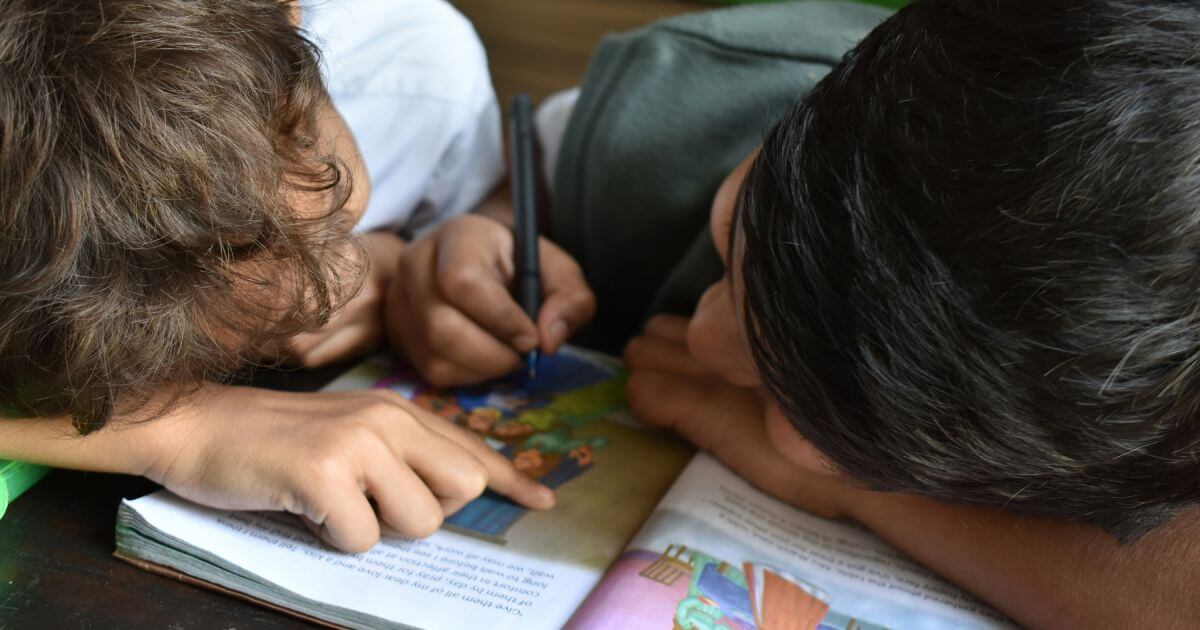Madeira is a stunning, family-friendly island—and for English-speaking families who move here or raise children in a multilingual environment, the big question often is: “How can I raise my child to be fluent in both English and Portuguese?”
The good news? Madeira is a fantastic place to raise bilingual children. But it takes some intention, balance, and support—especially if your home language is English and your child’s schooling is in Portuguese.
Here’s how to make bilingualism work for your family in Madeira.
Why Bilingualism Matters in Madeira
Being bilingual opens up opportunities, especially in Madeira where tourism, international communities, and the Portuguese education system coexist.
Your child will benefit from:
- Better communication with local friends and teachers
- Stronger cognitive and academic skills from bilingual learning
- Greater flexibility in future job opportunities in Portugal or abroad
1. Speak English at Home, Portuguese Outside
A common and effective strategy is “one environment, one language”:
- English is the home language
- Portuguese is the school and community language
This helps children know when and where to use each language. In time, they’ll become comfortable switching between both.
✅ Tip: Be consistent. Don’t switch back and forth in the same sentence.
2. Choose a School That Supports Language Growth
Public schools in Madeira are taught entirely in European Portuguese, and immersion is often the fastest way for children to learn the language.
If your child is new to Portuguese:
- Inform the school so teachers are aware and can offer support
- Consider extra language tutoring to help them catch up
There are also a few private or international schools that offer bilingual education, combining English and Portuguese in the curriculum.
3. Surround Your Child with Portuguese Media
Daily exposure helps kids absorb vocabulary, rhythm, and expressions naturally.
Try:
- Cartoons and children’s shows on RTP Play or channels for children in European Portuguese
- Portuguese audiobooks or bedtime stories
- Music and sing-along playlists in Portuguese
✅ Make it fun: Children learn faster when they enjoy the language.
4. Read in Both Languages
Start a mini-home library with children’s books in both English and Portuguese. Reading in both languages builds vocabulary, strengthens grammar, and reinforces a love of learning.
If your child is still young, read aloud in both languages. For older kids, alternate bedtime stories—one night in English, one in Portuguese.
5. Encourage Local Friendships
The more your child interacts with local kids, the more natural Portuguese becomes. Playgrounds, sports clubs, and after-school activities are perfect for this.
✅ Even if your child is shy at first, social immersion boosts both confidence and fluency over time.
6. Get Extra Help if Needed
If you’re not fluent in Portuguese yourself, supporting your child can feel challenging. That’s where a tutor comes in.
Consider working with a tutor who:
- Specializes in children and bilingual families
- Focuses on European Portuguese, not Brazilian
- It uses games, songs, and visuals to keep it engaging
I offer online Portuguese lessons for kids in Madeira—interactive, fun, and fully adapted to your child’s pace. You can also find me on Italki and schedule a lesson with me.
Discover 7 Mistakes to Avoid When Learning Portuguese in Portugal.
Frequently Asked Questions
Do kids in Madeira need to speak Portuguese to go to school?
Yes. Public schools use European Portuguese as the main language. While some support is available, it’s important to help your child learn the language early.
Will my child forget English if we live in Portugal?
No, as long as you maintain English at home. Bilingual children can thrive in both languages with regular exposure to each.
Is European Portuguese very different from Brazilian Portuguese?
Yes. Pronunciation, vocabulary, and some grammar are different. If you live in Madeira, your child should learn European Portuguese.
What’s the best age to start teaching a second language?
As early as possible! Younger children absorb languages naturally, especially before age 7. But it’s never too late to start.
Final Thoughts about Bilingual kids Madeira Portuguese
Raising bilingual kids in Madeira is not only possible—it’s a gift that will shape their identity, open doors, and connect them more deeply with life on the island.
With consistency, exposure, and support, your child can become confident in both English and Portuguese—and grow up truly at home in both worlds.

